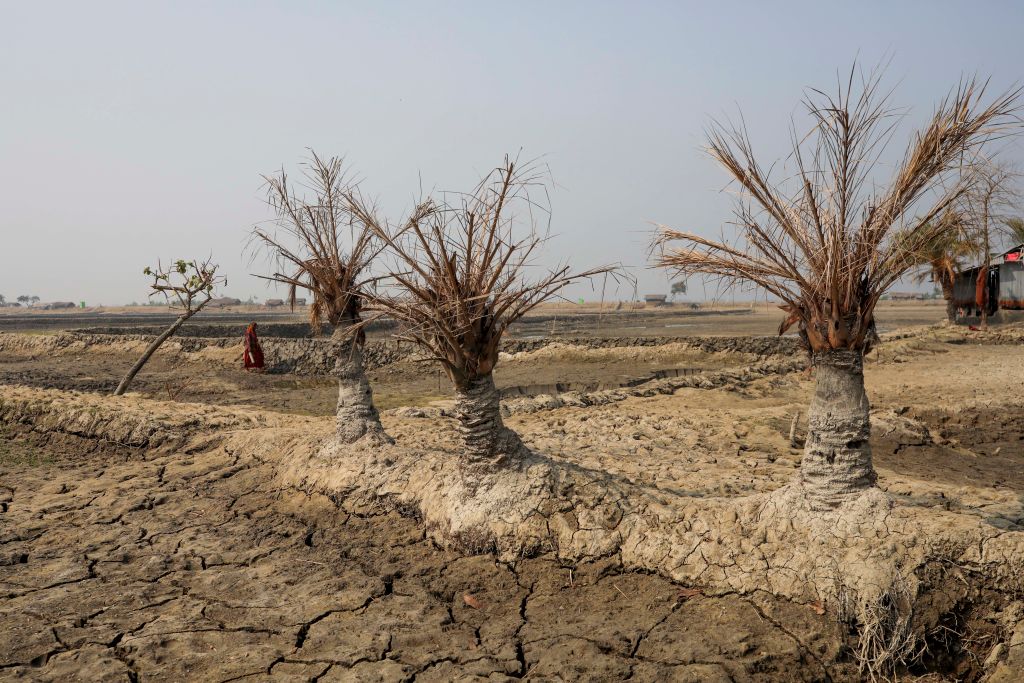
The language of diplomacy rarely allows for a true sense of emotion or urgency. But reading between the lines of the latest report commissioned by the United Nations Framework Convention on Climate Change (UNFCCC)—the body representing the 197 member nations of the Paris Agreement to minimize a global average temperature rise this century—the message is clear. The world has precisely ten months to get our act together if there is to be any hope of staving off a climate catastrophe by the end of the century.
If member nations are to achieve the Paris Agreement target of limiting global temperature rise above preindustrial levels by 2°C—ideally 1.5°C—by 2100, they must redouble efforts and submit stronger, more ambitious goals to reduce carbon emissions, according to the report. The document tabulates the national climate action plans [NDCs], of each member nation. The NDCs, which were due at the end of 2020, are essentially blueprints laying out emission reduction targets for each country along with plans detailing how they will meet those stated goals.
So far, the plans all coming up short. The report shows that while the majority of the 75 nations that have submitted NDCs increased their individual commitments, their combined impact puts them on a path to achieve only a 1% reduction in global emissions by 2030, compared to the 45% reduction needed to hit the 1.5°C temperature goal. “This report shows that current levels of climate ambition are very far from putting us on a pathway that will meet our Paris Agreement goals,” said Patricia Espinosa, Executive Secretary of UN Climate Change. “While we acknowledge the recent political shift in momentum towards stronger climate action throughout the world, decisions to accelerate and broaden climate action everywhere must be taken now.”
Another report will be released prior to COP 26, the global meeting on Climate Change, currently scheduled for November in the U.K., giving stragglers time to catch up, says Espinosa. “It’s time for all remaining parties to step up, fulfill what they promised to do under the Paris Agreement and submit their NDCs as soon as possible. If this task was urgent before, it’s crucial now.”
Read more: 2020 Was a Year of Climate Extremes. What Can We Expect in 2021?
The former President of Ireland, Mary Robinson, who also served as United Nations High Commissioner for Human Rights and is now Chair of The Elders, was scathing in her assessment of the commitments made by some of the world’s biggest polluters and did not hesitate to single out countries by name. “Major economies need to ramp up their ambition – starting with the U.S., where expectations are high for an emissions and finance pledge to make up for lost time. Others like Japan, Canada, Korea, New Zealand and China, have committed to net zero goals by mid-century, but we are still missing their promised new near-term plans to get there,” she said in a statement released ahead of the report.
Robinson was particularly withering when it came to Australia’s commitments, noting that it was not enough for the country to “repackage a plan that was already inadequate five years ago. The good news is there is still time for radical improvement if Australia wants to keep pace with their major allies and trading partners.”
The clock is ticking for Australia, as well as everyone else.
More Must-Reads from TIME
- Cybersecurity Experts Are Sounding the Alarm on DOGE
- Meet the 2025 Women of the Year
- The Harsh Truth About Disability Inclusion
- Why Do More Young Adults Have Cancer?
- Colman Domingo Leads With Radical Love
- How to Get Better at Doing Things Alone
- Michelle Zauner Stares Down the Darkness
Contact us at letters@time.com